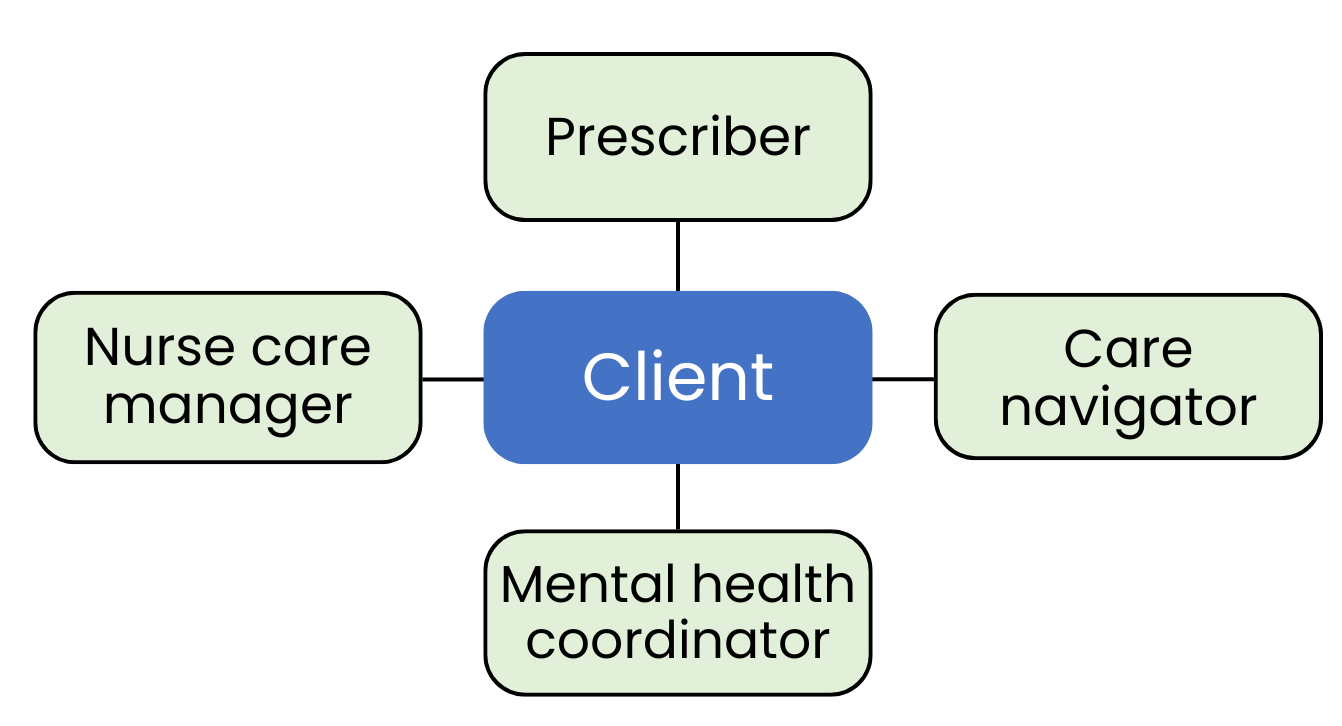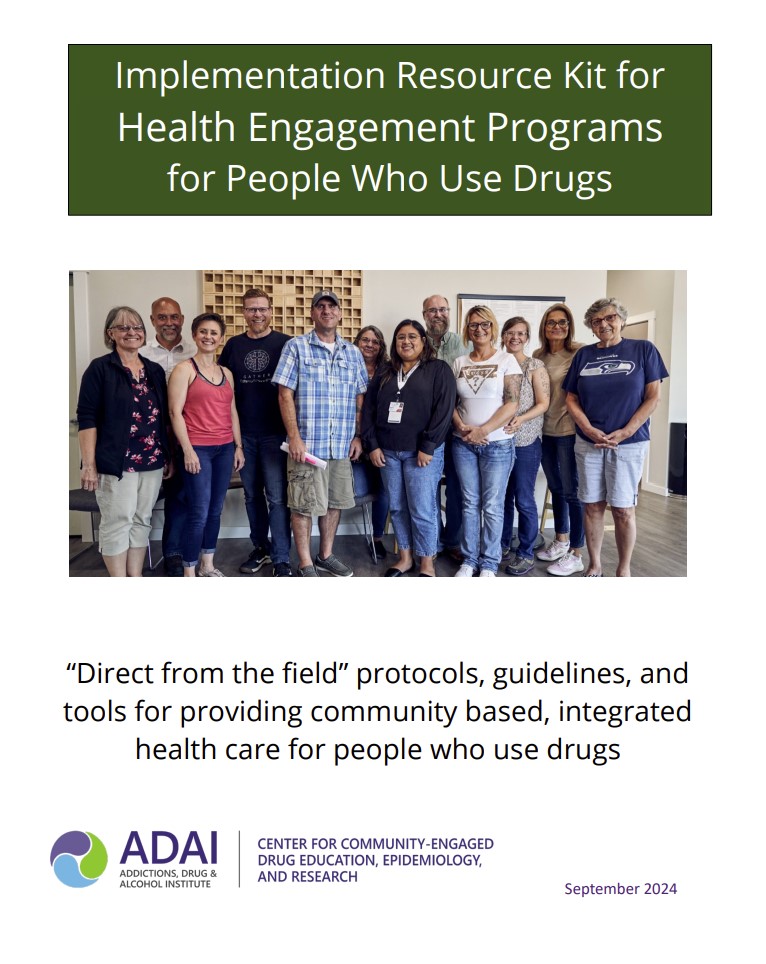Health Engagement Programs
The Health Engagement Program Model

Health engagement program is a broad term for a range of models providing low-barrier substance use treatment, harm reduction, and basic medical services for people who use drugs (primarily opioids and stimulants).
This includes low-barrier buprenorphine programs at harm reduction programs, “drug user health hubs,” WA State’s Health Engagement Hub model1, and post-overdose recovery centers.
Health engagement programs are ideally co-located with syringe services programs (SSPs) and/or housed within and operated by community-based programs grounded in harm reduction philosophy and practice. In Washington State this model evolved in part from drop-in buprenorphine clinics at the Public Health-Seattle & King County syringe services program2 and the Olympia Bupe Clinic3.
The central goal of this model is to provide a range of coordinated services in a single, easy to access point of care where clients can build trusting relationships that encourage them to engage—and stay engaged—with health care and support services to make progress towards health and life goals.
Interest in models like health engagement programs is high among potential clients. In a 2023 survey conducted at harm reduction programs, 75% of program participants said they would see a health care provider at that harm reduction program if available.
References
- Substance Use and Recovery Services Plan Recommendation – Establishing Health Engagement Hubs. Washington State Health Care Authority.
- Engaging an unstably housed population with low-barrier buprenorphine treatment at a syringe services program: Lessons learned from Seattle, Washington. Hood JE, et al. Substance Abuse 2020;41(3):356-364.
- Walk-in clinics for opioid addiction offer meds first, fast. Johnson CK. Associated Press, December 18, 2019.
Implementation Resource Kit

The Implementation Resource Kit for Health Engagement Programs contains a number of tools to help community organizations plan, implement, and sustain a health engagement program for people who use drugs. The particular model featured in this resource kit uses a care team or “health support team” of a prescriber, nurse care manager, care navigator(s), and a mental health coordinator, all working together with the client.
The Resource Kit includes:
- An Implementation Roadmap to guide you through the four phases of project implementation:

- Sample protocols, policies, and staffing documents.
- Templates for planning budgets, service flow, and training agendas.
- Other tools such as training manuals, client materials, and data collection forms.
Download the Implementation Resource Kit here!
Links for Auxiliary Documents
- Staffing and Service Plan Template (docx)
- Sample Buprenorphine Protocols
- Medication Diversion Control Policy (docx)
- 2023 Health Support Team Evaluation Report (pdf)
- Medications for Opioid Use Disorder brochure (pdf) and Companion Guide for shared decision-making
- High Dose Bupe Patient Handout (pdf)
- Low Dose Bupe Patient Handout (pdf)
- Sample Job Descriptions (docx)
- Sample Training Agenda (docx)
- Care Navigator Manual (pdf)
- Sample Budget Worksheet (xlsx)
- Potential and Recommended Billing Codes (docx)
- Meds First Program Brochure (pdf)
Publications and Reports
- Substance Use and Recovery Services Plan Recommendation – Establishing Health Engagement Hubs. Washington State Health Care Authority.
- New York State Department of Health Drug User Health Hubs (website).
- Engaging an unstably housed population with low-barrier buprenorphine treatment at a syringe services program: Lessons learned from Seattle, Washington. Hood JE, et al. Substance Abuse 2020;41(3):356-364.
- Walk-in clinics for opioid addiction offer meds first, fast. Johnson CK. Associated Press, December 18, 2019.
- The case for a medication first approach to the treatment of opioid use disorder. Winograd RP, et al. American Journal of Drug and Alcohol Abuse 2019; 45(4): 333-340.
- Community-Based Meds First in WA State: The Community-Based Medication-First program for opioid use disorder: a hybrid implementation study protocol of a rapid access to buprenorphine program in Washington State. Banta-Green CJ, et al. Addiction Science & Clinical Practice 2022;17:34.
- Community-Based Medications First for Opioid Use Disorder- Care utilization and mortality outcomes. Banta-Green CJ, et al. Substance Abuse and Rehabilitation 2024;15:173-183.
- Care Navigation at Harm Reduction Programs: Meds First Preliminary Data Report. Kingston S, Banta-Green C. Seattle, WA: ADAI, University of Washington, June 2022.
